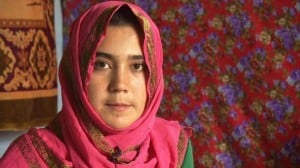At the upcoming June 19 elections in Libya, Libyan women hope to secure a good amount of seats in the national assembly.
The Saudi Gazette features a story about a Saudi woman, Alya Al-Ghamdi, whose ex-husband denies her the right to see her children, supposedly because he is afraid that her new British Muslim husband will molest their daughters.
Al Akhbar English features a piece on the “veiling policies” of Lebanese satellite channel Manar TV.
The Bangladeshi High Court has ordered officials to explain their failure to prevent a 12-year-old girl getting married to a 14-year-old boy last weekend. Bangladesh has one of the highest child marriage rates in the world.
Rural women in Morocco are benefiting from a literacy program, where they are being educated not only in reading and writing, but learn about civil rights and income generating activities as well, to break the circle of poverty in which many rural women find themselves.
A special helpline has been launched in The Netherlands for women who are imprisoned in a religious marriage, even though they are already divorced according to civil law. This helpline is aimed at women from all faiths, but the initiator and the woman featured in the article are Muslim.
The Indian state of Uttar Pradesh may give inheritance rights to Muslim women.
Since according to pollsters women make up the majority of the undecided votes, Egyptian presidential candidates are making a final push to secure the women’s vote.
According to a report by Al-Jazeera, Afghan women are much better off today, than they were under Taliban-rule. Afghan women and girls now have not only an increased access to education, but some of them now even come together to discuss poetry.
The Independent features a profile of Saudi activist Manal al-Sharif.
According to FIFA’s medical advisers say that new designs for headscarves are needed, because wearing the hijab could potentially lead to neck and head injuries.
Due to a mixture of poverty and increasing divorce rates, many Tajik women leave to Russia as (illegal) migrant workers to provide for their families.
Over 120 Afghan school girls have been taken to hospital following a suspected poison attack. The Taliban are believed to be responsible.
Jailed Bahraini activist Zainab al-Khawaja (better known as AngryArabia on Twitter) has written a letter from prison condemning the continuation of abuse in the country and refusing to accept the Bahraini legal system.
Wakeelah Salaam, who wears niqab, was told to remove her face veil inside a New Jersey, USA shopping mall, or to leave the mall. She has filed a complaint.
On the Tanzanian island of Zanzibar, an increasing number of women and children are being abandoned by their husbands/fathers. Officials blame it on poverty, which forces men to find opportunities elsewhere, the women often blame it on the dishonesty of their men.
The Indian government wants to expand a local program across the country that provides free bicycles to girls in order to keep them in school. The program is mainly aimed at Muslim girls, as their dropout rate is the highest.
The satellite channel Marya, which features and employs fully veiled women only, is currently on test transmission and is stirring up quite a debate in Egypt.
An increasing number of young, educated Kyrgyz women choose to wear the headscarf, a choice that is not always accepted in Kyrgyz society.















